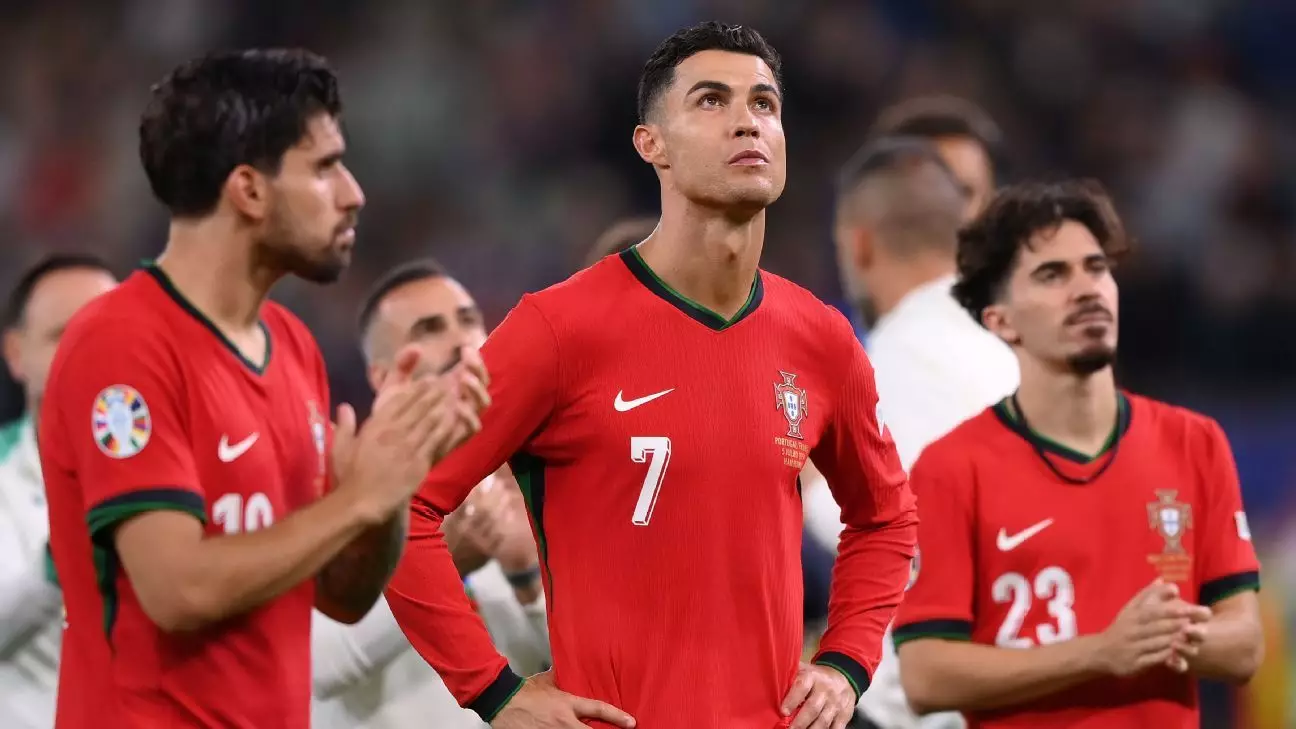The recent performance of Cristiano Ronaldo in Euro 2024 has sparked various debates and discussions surrounding his role in the Portugal national team. The tournament witnessed Ronaldo’s struggle to find the back of the net despite being a prolific goal-scorer in the past. However, it is crucial to delve deeper into the factors that may have contributed to this outcome.
One key aspect that stands out is the insistence of Portugal boss Roberto Martinez on fielding Ronaldo in every minute of every game during the tournament. This decision raises questions about whether Martinez prioritized Ronaldo’s personal achievements over the team’s success. The statistics reveal that Ronaldo took 23 shots in the tournament without scoring, highlighting a clear disconnect between his expected goals and the actual outcomes.
Moreover, there was a noticeable lack of adaptability in the team’s strategy to accommodate Ronaldo’s limitations. While efforts were made to build a framework that capitalized on Ronaldo’s strengths, it became apparent that his lack of mobility and declining prowess were hindering Portugal’s overall performance. The failure to recognize and address these issues sooner may have impacted the team’s chances of success.
Martinez’s Decision-Making and Player Management
As the tournament progressed, it became evident that Martinez’s decision to rely heavily on Ronaldo was not yielding the desired results. The reluctance to explore alternatives or provide opportunities for other players to make an impact raises concerns about his approach to player management. The decision to overlook Ronaldo’s struggles and fatigue during critical moments reflects a lack of discernment and adaptability on the part of the coaching staff.
Furthermore, the comparison between Martinez and his predecessor, Fernando Santos, who had previously benched Ronaldo in a crucial World Cup fixture, raises questions about Martinez’s judgment and independence. Despite being an outsider with a fresh perspective, Martinez appeared to be overly invested in Ronaldo’s success, potentially overshadowing the team’s collective objectives.
It is essential to acknowledge Ronaldo’s unparalleled legacy in football and his tremendous contributions to the sport. However, the assumption that Ronaldo’s reputation needed to be upheld through continuous involvement in the team may have been misguided. Ronaldo’s legacy transcends individual performances and should not have been a deciding factor in team selection and strategy.
The focus should have been on maximizing the team’s potential and adapting to evolving circumstances rather than adhering to preconceived notions of Ronaldo’s invincibility. The failure to recognize Ronaldo as a part of the team, rather than its defining feature, may have hindered Portugal’s progress in the tournament.
The analysis of Cristiano Ronaldo’s performance in Euro 2024 reveals a nuanced picture of ambition, expectation, and flawed decision-making. While Ronaldo’s stature as a football icon is undisputed, the tournament highlighted the importance of adaptability, strategic thinking, and effective player management in achieving success at the highest level. Moving forward, a critical assessment of Ronaldo’s role and the team’s dynamics will be vital in shaping Portugal’s future endeavors in international competitions.

Leave a Reply